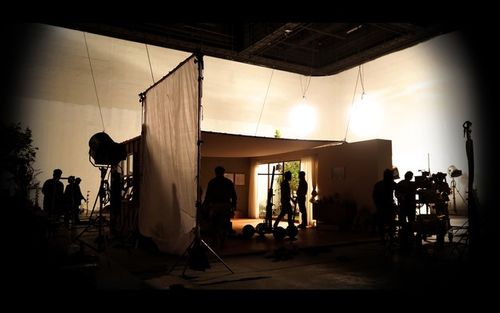Table of Contents
Do you love watching films and aspire to be a part of a film project one day? Have you often imagined yourself as Satyajit Ray, Ritwik Ghatak, Spielberg, Bhansali, or Coppola, giving directions to your cast and crew and bringing life to the big screen masterpieces worthy of recognition and awards? Then becoming a film director is the ideal career path for a creative and ambitious soul like you!
Here is everything you need to know from what a film director does, the skills you need, top universities and application requirements.
Role of a film director
A film director to be very precise is the captain of the ship. They have the ultimate artistic control of any filmmaking project. Not only do they translate the technical aspects into film language to move the story forward but also mentor the actors involved to get the right emotions from one scene to the other. The best film directors are those who can give enough leeway to actors to interpret a scene without deviating from the demands of the content.
Thus, the ideal film director is one who commands authority of a project and lets it go to let the other actors and crew fully immerse themselves in the process and interpret it in their own way.
The role of a director in a film is crucial because they not only direct but are also present in the post and pre-production stage. They coordinate with producers, line producers, select actors for the part. During the post-production phase, they align with the editors, visual effects team, sound design team and even discuss terms of distributions with distributors.
What skills should a film director have?
If you wish to become a film director you need to have a few skills to succeed at your game. Love for films or an artistic bend of mind is not enough to become a successful film director. You need to have –
1. Sound Technical Knowledge

You may not be an expert in every field but in order to be a film director, you certainly need to be a jack of all trades. A basic understanding of framing, lighting, staging, and acting is essential for a director to be able to coordinate everything and differentiate between a good shot and a bad one.
2. Creativity
Being creative is one non-negotiable trait for this role. You need to have the capability to visualize the project and know exactly how to bring it out through the film which also includes extracting what you need from the actors. How you choose to go about it is entirely up to you. You can be a director who minutely describes what they want from the actors or you can just explain the scene and let the actors bring it to fruition. But for either method, you need to have a creative bent of mind.
3. Storytelling talent
A successful filmmaker has to be a great storyteller; someone who can structure a story well and narrate it effectively to bring what it has to say. Additionally, if you can write scripts and create storyboards, these are added leverages.
4. Leadership qualities
Let’s face it, leadership and teambuilding qualities are basic when you are heading a project. Filmmaking is a complicated and demanding (physically as well as mentally) process during the course of which you will come across unpredictable and sudden situations. You need to be level-headed enough to be able to solve these roadblocks and complete the project on time.
5. Communication
For any progress to be made communication is key between a team. As a film director not only are you expected to be able to communicate your vision lucidly but you are also required to communicate with colleagues (cast and crew) every day on the set. You have to ensure there is amicability and keep everyone’s morale up when things go haywire. A film director also needs to convincingly sell his project once it’s good to go. So, communication is a necessary trait needing enforcement at every step of the process.
What aspects will you be taught?
If you decide to take up an undergraduate program in Film Direction you will be given an introduction or basic knowledge of the following subject areas –
- Film history
- Lighting techniques
- Screenwriting
- Acting
- Directing
- Production design
- Visual effects
- Digital editing
- Drawing (for storyboarding purposes)
If you intend to go for a more advanced program like a master’s degree in film direction or filmmaking you learn about key areas in detail. However, you will be required to submit samples of original work at the time of enrolment. Some of the areas you will explore in detail are –
- Screenwriting
- Sound design
- Lighting
- Scenery
- Voice
- Editing
- Acting
Keep in mind that with the institute you apply for, there might be slight variations in the subjects you are taught.
Top universities
Want to transform your dream of becoming a filmmaker into a living reality? The top film schools from all around the world are specifically designed to identify, hone, develop and extract hidden talent within students relating to one or more aspects of the filmmaking process.
Here are some acclaimed institutes instrumental behind churning out talent in the industry for years now:
- American Film Institute
- CalArts School of Film and Video
- Los Angeles Film School
- Kanbar Institute of Film & Television
- New York Film Academy
- UCLA’s School of Theater, Film & Television
- Toronto Film School
- Vancouver Film School
- London Film School
- La Femis
- National Film School, Italy
- National Film School of Denmark
- Beijing Film Academy
- Korean Academy of Film Arts
Application requirements

After you have shortlisted your preferred university, you need to sit down and browse through the university website to see what are the specific application requirements and deadlines. Both these criteria will differ from institute to institute slightly. Overall, here are a few documents you are expected to submit –
- 10+2 level of education from a recognized school or institute
- Bachelor’s degree with a first-class
- Master’s degree with a first-class
- Relevant professional experience of filmmaking/ A portfolio of self-made films (short or feature-length)/ CV
- Sample of an original script written by you
- Other relevant documents (if any)
- Letter of recommendation from your mentors, professors, employers
- Proof of language proficiency
- Standard test scores
- Letter of motivation or statement of purpose
How much does a film direction degree cost?
The cost of film school will vary depending upon the country, the type of degree you are opting for and the university you intend to apply to.
Saying that on average if you have decided to go to a film school in the United States, you can expect it to cost approximately $35,000 annually. In the United Kingdom, the cost for local students is around $1,437,007 yearly and for international students $3,014,700.
Liked this blog? Read Vocational courses | 8 best courses that you can pursue!
FAQs
Q1. Why is the cost of a film school so exorbitant?
Answer – The reason why most people are unable to go for formal film training is due to the high cost of courses. Reasons for such steepness in course fees are listed below:
- The cost of education is increasing every year
- A film school is mostly a private enterprise so there is no backing from state funds. Whatever be the cost of the institute it will have to be indirectly borne by the students.
- In order to teach you the tricks of the trade, a film school has to replicate the actual production environment which is a cost-intensive process. This includes renting or purchasing film equipment such as cameras, lights, sound, costumes, software, and so on. All of these costs are passed down to the students.
Q2. What are the career opportunities after completion of the degree?
Ans: Once you have completed your degree in film direction or filmmaking you can go for one of the popular roles mentioned below:
- Film crew
- Camera operator
- Music director
- Media researcher
- Director
- Film producer
- Film editor
- Production planner
- Scriptwriter
- Executive producer
- Assistant director
You can either join the entertainment industry to work professionally and earn a stable living or you can make your own films independently or gather state funds or crowdfunds to bring to life your story.
Q3. What is the hype around film festivals?
Answer – Aspiring filmmakers and film directors will find film festivals extremely useful as a platform to tell their stories, get recognition and exposure. If you are not a professional film director and do not have the funds to release your work in theatres, you can send your project to film festivals either free or by paying a nominal fee and waiting for selection. If your work is appreciated, it will be showcased and you will get an opportunity to present your calibre as a filmmaker. You will also be eligible to win an award and prize money for your work.
Feel free to check out our blog for more such information!
Good luck!






